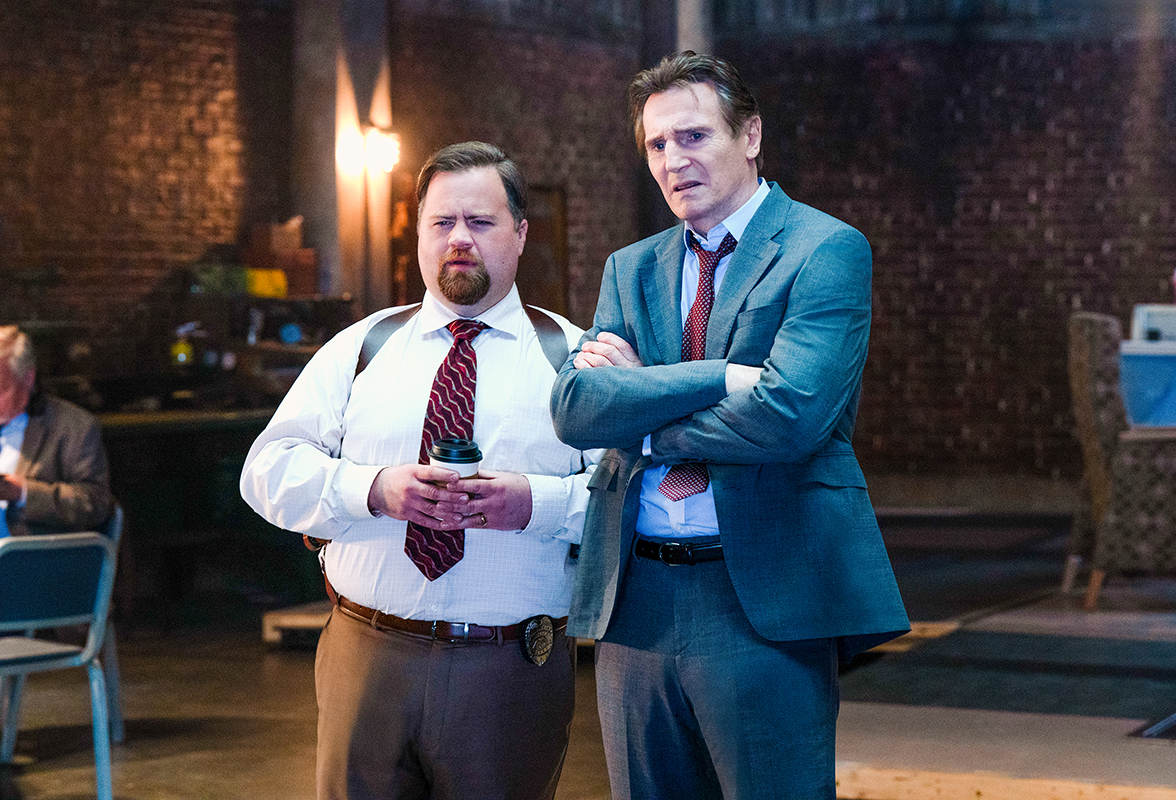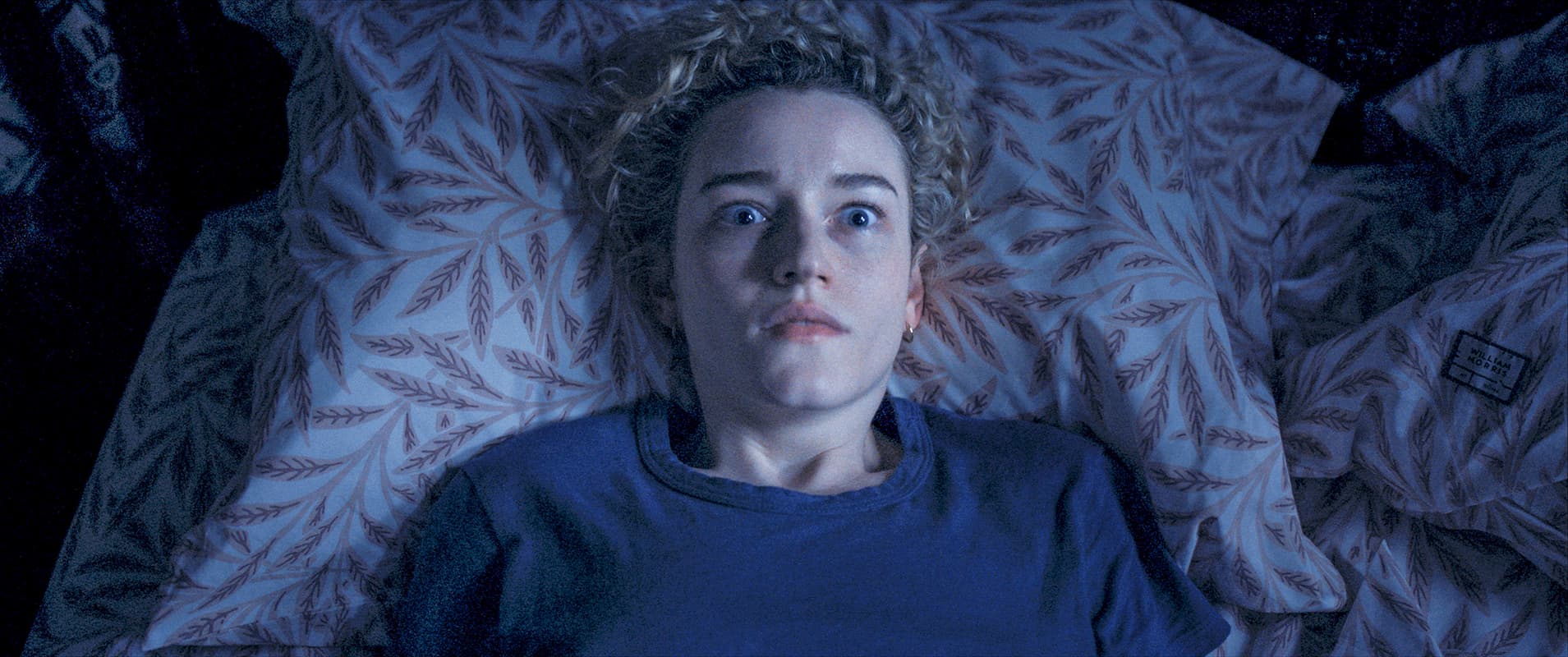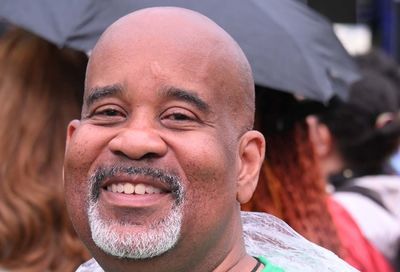Review: 28 Years Later Isn’t Quite What You’re Expecting
28 Years Later revives the post-apocalyptic horror saga with a tense, blood-soaked trek through an infected wasteland.

Based on its stunning trailer — propelled by early-Hollywood actor Taylor Holmes’ ripping 1915 recording of the Rudyard Kipling poem “Boots” — one might expect 28 Years Later to focus on a father and son’s war for survival against zombie-like hordes.
Directed by Danny Boyle and written by Alex Garland, creators of the 2002 series originator 28 Days Later, the film does venture with 12-year-old Spike (Alfie Williams) and his rugged dad, Jamie (Aaron Taylor-Johnson), into territory crawling with rage virus-infected human predators.
Yet, that’s just a piece of a richer narrative anchored by the drama of domestic dysfunction within Spike’s family, which also includes his homebound, mentally ill mom, Isla (Jodie Comer).
Boyle still makes chilling use of Holmes’ intense “Boots” oration, set to the electro sirens and thrums of the score by alternative hip-hop trio Young Fathers. Evoking the horrors of combat, the poem underscores a vintage-film montage of soldiers marching towards death, as we follow Spike and Jamie across the tidal causeway separating their peaceful, fortified island village from the British mainland.
As noted in onscreen text, the virus started in Great Britain, which has been entirely quarantined from the rest of the world, including the European continent. You wanted Brexit? You got it — along with thousands of remaining infected roaming the British countryside in search of fresh flesh and blood.
Inside that quarantine zone, Spike has fortunately grown up safe in isolated Holy Island Mission, a collective of tradespeople: shepherds, farmers, fishermen, carpenters, and such. Their society registers as cultish, but the Mission’s inhabitants survive seemingly peacefully.
In some ways progressive, with a village council led by tough cookie Jenny (Stella Gonet), it’s also a primitive existence, governed by primitive-looking rituals. Spike’s trek onto the mainland with his dad, each armed with a bow and arrow, clearly represents a rite of passage celebrated by his community.
The boy is meant to learn how to hunt and kill the ravenous creatures roving across land that the villagers still use for natural resources like lumber. “The more you kill, the easier it gets,” Jamie tells his son.
Does that also apply to filmmakers? Boyle wrought gut-wrenching suspense from the eerie atmosphere of a deserted London in 28 Days Later, contrasted by the action onslaught in the heart-pounding sequel 28 Weeks Later, directed by Juan Carlos Fresnadillo.
Boyle stages a good share of edge-of-your-seat sequences here, many bouncing along to music, though still brutally unrelenting, for both the trauma they inflict on certain characters and for not cutting away from the gore and violence. The film ups the ante on the threat posed by the infected, introducing alphas who are stronger, faster, and smarter than the average bloodthirsty ghoul.
Alphas have an alarming tendency to rip their quarry’s head off with the spinal column attached and dangling, so maybe they’re gaining high-potency nutrition that way. A recurring shot of a giant alpha waiting in perfect stillness on a hillside, an ominous silhouette on the horizon, perfectly frames how frightening just one of these monsters can be.
There are still dozens of quick, surprisingly wily regular infected to chase and terrorize Jamie and Spike, rendered as a fast learner and courageous hero by newcomer Williams.
The boy’s first trip to the mainland is just the start of a treacherous journey that also leads to encounters with a Swedish Navy private, Erik (Young Royals star Edvin Ryding), effective as comic relief, and the mysterious Dr. Kelson, a rascally hermit portrayed as a committed kook by Ralph Fiennes.
Experiencing a crisis of faith in his father, Spike looks to the doctor for salvation, echoing the film’s harrowing prologue in which a different boy seeks hope in the chapel of his reverend father. That boy’s faith turns out to be woefully misplaced.
For Spike, that question won’t truly be decided until the next sequel, shot back-to-back with this one by director Nia DaCosta (2021’s Candyman), and set for release in another six months.
28 Years Later (★★★★☆), rated R, is now playing in theaters nationwide. Visit www.fandango.com.
Support Metro Weekly’s Journalism
These are challenging times for news organizations. And yet it’s crucial we stay active and provide vital resources and information to both our local readers and the world. So won’t you please take a moment and consider supporting Metro Weekly with a membership? For as little as $5 a month, you can help ensure Metro Weekly magazine and MetroWeekly.com remain free, viable resources as we provide the best, most diverse, culturally-resonant LGBTQ coverage in both the D.C. region and around the world. Memberships come with exclusive perks and discounts, your own personal digital delivery of each week’s magazine (and an archive), access to our Member's Lounge when it launches this fall, and exclusive members-only items like Metro Weekly Membership Mugs and Tote Bags! Check out all our membership levels here and please join us today!




























You must be logged in to post a comment.